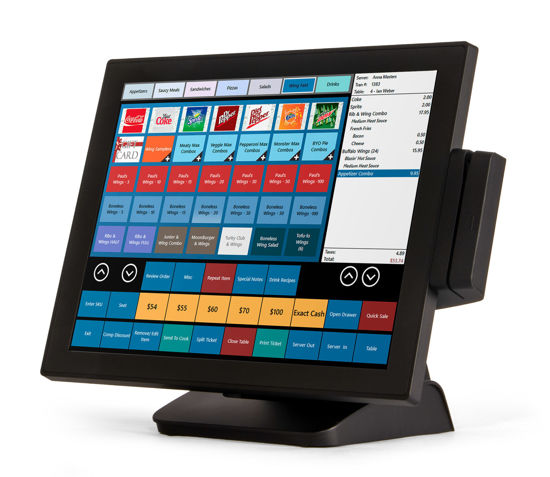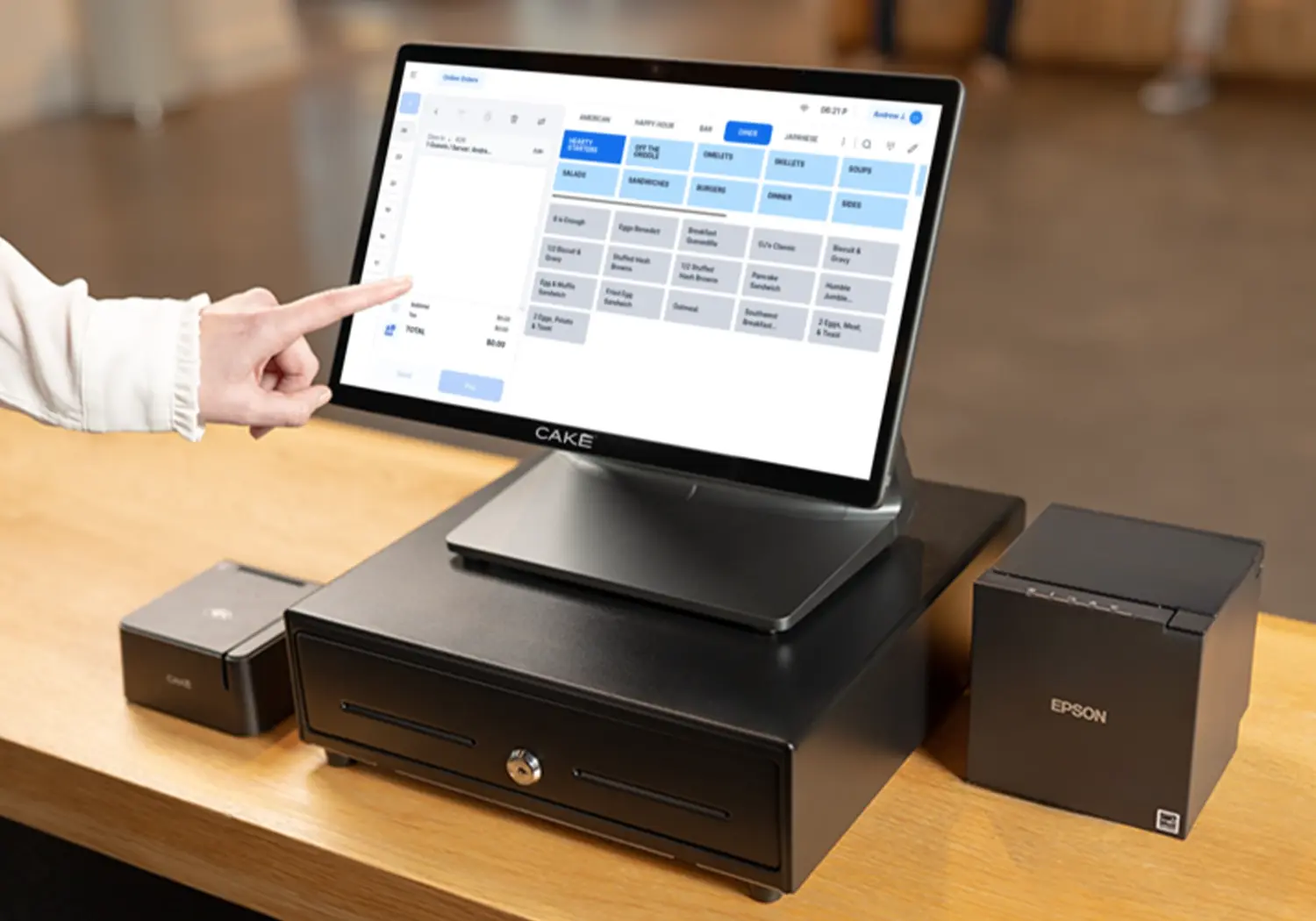The Pos Systems Statements
The Pos Systems Statements
Blog Article
Not known Facts About Pos Systems

Restaurant POS: Retail Point-Of-Sale Solutions Streamline Transactions
Little Known Facts About Pos Systems.

Hardware Elements of a Point of Sale System What makes a POS system tick? It's not just software application; the hardware plays a starring role. Think about it as the body to the software's brain. Without the best hardware, even the most sophisticated POS software is simply a quite face. Vital POS Hardware So, what are the must-haves? Let's simplify. The main processing unit, frequently a computer system or tablet, is the heart of the operation. The monitor or touchscreen display permits personnel to communicate with the system. A barcode scanner speeds up the checkout procedure. Remember the days of manually going into each code? The trusty receipt printer supplies consumers with a record of their purchase. A cash drawer keeps your money safe and organized. A card reader enables clients to pay with credit or debit cards. Diving Deeper: Beyond the Essential But wait, there's more! Depending on your service, you may require specific hardware. A dining establishment may include kitchen printers to relay orders, while a retail store might use label printers for product tagging. Ever question how your local bakery instantly prints those delicious-looking labels? Picking the Right Hardware: A Balancing Act Picking the ideal hardware isn't practically purchasing check here the most pricey equipment. It's about finding the sweet spot in between performance, sturdiness, and budget. A small company just beginning may select a more standard setup, while a high-volume seller will require robust, high-performance devices. Is it better to buy brand-new or utilized? Consider your options carefully. A new system uses the latest technology and warranty defense, however a reconditioned system can conserve you cash. The Future of POS Hardware What does the future hold? Expect to see even more integration with mobile devices, biometric scanners for worker authentication, and advanced analytics dashboards displayed on bigger, clearer screens. Envision a world where stock is immediately updated in real-time as products are scanned-- a world where you can track your best-selling item from throughout the world. The possibilities are limitless, and the hardware is constantly evolving to meet the needs of today's companies. Are you all set to update your point of sale system?
Software Characteristics and Capabilities: The Heart of Your POS System
Ever watch a skilled barista glide through a busy early morning rush? Their trick isn't simply caffeine; it's a seamless dance with their POS system. The software application is the conductor of your company symphony, orchestrating everything from sales to inventory. What notes should you be listening for? What abilities really matter in today's market?
Stock Management: Beyond Counting Beans
Forget spreadsheets that haunt your dreams. Modern POS systems offer real-time inventory tracking, informing you when your stock of artisanal coffee beans dips precariously low. Consider it as a digital guardian angel, preventing those awkward "Sorry, we're out!" minutes to customers. What if you could also predict demand based on historical information? Lots of systems now use forecasting tools, a powerful weapon versus overstocking and lost sales. This helps avoid the predicament of running out of popular products or collecting excess stock of slow-moving products, both of which can constrain money circulation and area.
Sales Reporting and Analytics: Deciphering the Information
Sales data is the new gold, and your POS system is the miner. Forget feeling in one's bones just how much you offered today. Dive deep into the data to reveal trends, recognize your very popular items, and understand client habits. Which menu item pairs perfectly with the everyday special? Which promo resonated most with your customers? These insights are not just fascinating; they're actionable intelligence. Without reliable sales reporting, navigating the complexities of service decision-making becomes like sailing without a compass, increasing the opportunity of missteps and missed out on opportunities.
Customer Relationship Management (CRM): Building Bridges, Not Walls
Remembering a regular client's name and favorite order is captivating, but scaling that personal touch is tricky. POS systems with CRM abilities permit you to track consumer purchase history, preferences, and even birthdays. Imagine instantly offering a discount rate on their birthday-- a small gesture that promotes loyalty and encourages repeat company. However there is the prospective snag of bad data quality, which can result in inaccurate client profiles and ineffective marketing efforts.
Payment Processing: Streamlining the Deal
The checkout experience can make or break a sale. Smooth combination with different payment methods-- credit cards, mobile wallets, even copyright-- is non-negotiable. Can your system deal with split payments? Does it offer protected tokenization to protect customer data? A cumbersome payment procedure is like striking a sour note in your organization symphony, potentially interrupting the entire performance. Making sure compatibility with progressing payment technologies and adherence to security requirements are vital for maintaining client trust and operational effectiveness.
Worker Management: Keeping the Group in Sync
From clocking in and out to managing approvals and tracking efficiency, employee management includes simplify operations and enhance accountability. Is scheduling a headache? Lots of POS systems use incorporated scheduling tools, optimizing staffing levels based upon forecasted need. A common obstacle that is typically neglected is the difficulty of incorporating staff member management functionalities with payroll systems, which can cause mistakes and inadequacies in wage estimations.
Advanced Characteristics: Leveling Up Your Operations
- Table Management: Suitable for dining establishments, this feature enables you to imagine your dining space, track table status, and manage appointments.
- Commitment Programs: Reward your finest consumers and encourage repeat company with incorporated loyalty programs.
- Online Ordering Integration: Perfectly integrate your POS system with online ordering platforms to expand your reach.
Choosing the ideal POS system is about more than just functionality; it has to do with finding a partner that can grow with your business. Consider your current needs, prepare for future growth, and do not be afraid to ask the tough concerns. The best software can change your company from a chaotic cacophony into an unified masterpiece.
Industry-Specific POS System Applications
Consider the regional pastry shop, busy with morning customers craving fresh croissants. A generic POS system might handle deals, but can it handle intricate recipes, track active ingredient inventory, or immediately change production schedules based upon sales data? Most likely not. That is where the beauty of industry-specific POS systems shines.
Restaurants and Hospitality
For bustling restaurants, speed and precision are critical. The number of times have you seen servers managing orders, modifications, and splitting expenses, all while trying to offer exceptional service? A dining establishment POS system streamlines these procedures, permitting for table management, cooking area order tickets, and even online buying combination. These systems typically include functions like ingredient-level inventory tracking, important for handling food costs and minimizing waste. Ever question why your favorite meal is often not available? It may stem from an absence of correct stock management.
- Table Management
- Cooking Area Order Tickets
- Online Buying Integration
- Ingredient-Level Inventory Tracking
Retail Solutions
Retail, with its diverse stock and client interactions, requires a different set of tools. Imagine a boutique clothing store struggling to track sizes, colors, and seasonal collections using a basic checkout system. An industry-specific retail POS system provides features like barcode scanning, customer commitment programs, and in-depth sales reporting. These systems can even incorporate with e-commerce platforms, offering a smooth omnichannel experience for clients. Did you know some retail POS systems can predict future sales trends based upon historical data? Now that is powerful!
The Dangers of a Mismatch
Picking the incorrect POS system can develop significant operational difficulties. A clothes shop utilizing a restaurant POS, for example, would discover it inappropriate for managing inventory with sizes and colors. The absence of proper reporting and analytics might cause mistaken purchasing decisions and lost revenue. The outcome could be comparable to attempting to fit a square peg in a round hole.
Secret Factors to consider
Selecting an industry-specific POS system needs careful examination. Believe about your service's special requirements and functional workflows. Does the system integrate with existing software application? Does it provide the essential reporting abilities? Is it scalable to accommodate future development? A well-chosen POS system is not just a deal tool; it's a tactical possession that can drive effectiveness, improve consumer satisfaction, and ultimately, boost your bottom line. Keep in mind, it is a financial investment in your service's future, not just a cost.
Security Factors To Consider for Point of Sale Systems
Ever heard the tale of the mom-and-pop store that lost everything due to the fact that of a single, neglected security defect in their POS system!.?. !? It's a cautionary tale, and it highlights a crucial element frequently overshadowed by the appeal of elegant functions and structured operations. The reality is, a POS system is just as excellent as its security. What good is a system that crunches numbers in a flash if it allows wrongdoers to swipe client's information simply as rapidly?
The Vulnerability Minefield
The digital landscape is a battleground. Every POS system, regardless of size or sophistication, is a prospective target. Are you truly prepared for the dangers prowling around the corner? The real pinch comes when you find that your outdated software has an open hole that hackers can make use of, turning your business into an unwitting accomplice in identity theft. The problem is that hackers are crafty and are always changing their techniques.
Common Security Spaces and Professional Tips
- Weak Passwords: "Password123" isn't sufficing. Usage strong, unique passwords for all POS system accounts and alter them frequently. Two-factor authentication is a must.
- Unsecured Networks: Your Wi-Fi resembles leaving the front door open. Secure your network with strong file encryption (WPA3 if possible) and consider a separate network for your POS system.
- Out-of-date Software: Software application vendors spot security holes all the time. Failing to upgrade is like welcoming difficulty. Set up automated updates or schedule regular maintenance.
- Worker Training: Your personnel is your very first line of defense. Train them to recognize phishing attempts, protect passwords, and report suspicious activity.
Information File Encryption: Your Guard Versus the Dark Arts
Believe of data encryption as a secret code. It scrambles sensitive info, like charge card numbers, making it unreadable to unapproved users. Without encryption, your clients' financial details are like sitting ducks, ripe for the selecting by cybercriminals. It's not simply about securing your consumers; it's about securing your reputation and avoiding large fines.
PCI Compliance: The Rulebook You Can't Ignore
If you accept charge card, you're bound by the Payment Card Industry Data Security Standard (PCI DSS) It's a set of security standards developed to safeguard cardholder data. Stopping working to comply can result in fines, penalties, and even the loss of your capability to process charge card payments. It's a headache, yes, but it's an essential one. Think about PCI compliance as the expense of doing business in the digital age.
Consider this: every transaction processed through your point of sale is a prospective entry point for harmful actors. By executing robust security steps, you're not just protecting your organization; you're protecting your customers' trust and guaranteeing the long-term practicality of your operations. The security of your POS system isn't just a technical issue; it's a business imperative. It needs consistent caution, proactive procedures, and a dedication to staying ahead of the curve.